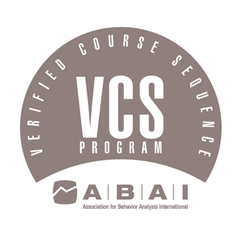The U.S. News and World Report ranks the graduate programs at the College of Education and Human Development 81st nationally, with the online graduate programs ranked 36th.
High-Impact Master's Education
The Master of Education in Special Education focuses on the preparation of teachers to work with students with disabilities in PK-12 schools. Teachers may also be prepared to work with infants and toddlers with disabilities and their families. The program has an emphasis area that the Association for Behavior Analysis International has verified toward the coursework requirements for eligibility to take the Board Certified Behavior Analyst® (Option 1) examination. Applicants will need to meet additional requirements before they can be deemed eligible to take the examination. Applicants interested in the BCBA should contact MaryAnn Demchak for more information at mad@unr.edu.

Program Emphasis
- mild to moderate disabilities (K-12),
- intellectual disabilities: moderate to intense needs,
- applied behavior analysis in special education,
- autism and related disorders (K-12),
- advanced studies in learning and behavior disorders, and
- early intervention/early childhood special education.
Programs of study leading to initial licensure or advanced preparation are both available.
Students will develop an in-depth understanding of special education policy and law, student characteristics, instructional methods, assessment, behavior management, and working collaboratively with families. They will be familiar with the professional literature related foundations and research in special education related to their area of emphasis. Teacher leadership is stressed with graduates able to interpret and evaluate research findings and apply them to special education and early intervention settings.
Request more information
Applications are accepted year-round
We recommend applications by April 15 for the fall semester and by October 15 for the spring semester.
Admission Requirements
- Completion of the program application
- Passing scores in the Praxis Core Academic Skills for Educators in Reading, Writing, and Math or CBEST. If you provide evidence of a Nevada Teaching License without a provision for the basic skills test, have a master's degree in another area for which GRE testing was completed for admission, or have earned an ACT score of 21 or higher or a SAT score of 1100 or higher and completed the exam within 10 years of your projected license application date, you are exempt from this requirement.
- Statement of professional goals
- 1-2 page resume
- Two professional letters of recommendation
- Qualified in the professional judgment of the program faculty
The specific curriculum requirements are adapted to the professional needs of the student. Students should not enroll in any graduate-level course without first securing the approval of the program that such a course is acceptable.
Program Contact Faculty Member: Dr. MaryAnn Demchak at mad@unr.edu.
Program Requirements

The MEd Degree in Special Education requires students to develop a program of study in conjunction with their advisor and committee that includes a minimum of 34 graduate credits, at least 15 of which must be at the 700-level.
Completion Requirements for the Master's Degree include:
- Filing a program of study, approved by the Graduate School
- Maintaining a 3.0 GPA in all graduate work
- Successful completion of a culminating comprehensive examination, portfolio, project or a thesis
Program Hours
A minimum of 33 credits are required. All degree candidates are required to complete one or more research courses. Some emphasis areas offer, and students choose to complete, a six-credit thesis as part of the program, resulting in a program of at least 39 credits. A maximum of six graduate credits of S/U grades may be applied toward a master's degree.
Educational Requirements for Licensure
The graduate program in Applied Behavior Analysis in Special Education in the Educator Preparation Department of the College of Education and Human Development at the University of Nevada, Reno is a Verified Course Sequence (VCS) approved through ABAI. Our program’s curriculum may lead to certification as a Board Certified Behavior Analyst (BCBA) and to licensure eligibility in Nevada and other states.
Licensure in most states is based upon BCBA certification. Although most states recognize graduating from a VCS-approved program and holding a BCBA certification to be sufficient evidence that an application to licensure meets the educational and experience requirements for licensure in their jurisdiction, some state boards have additional requirements beyond ABAI VCS requirements. If you intend to pursue licensure in Nevada or in another state, we HIGHLY advise you to contact the applicable state licensing board to familiarize yourself with its specific requirements and to determine its eligibility criteria. Contact information for state licensing boards is provided in the table below.
|
State |
Does the Program Meet the Educational Requirements for Licensure? |
Agency Website |
Contact Number |
|
Alabama |
Has not been determined |
1-800-392-0821 |
|
|
Alaska |
Has not been determined |
Alaska Department of Commerce, Community, and Economic Development |
(907) 465-2550 |
|
Arizona |
Has not been determined |
(602) 542-8162 |
|
|
Arkansas |
License not required |
||
|
California |
License not required |
||
|
Colorado |
License not required |
||
|
Connecticut |
Has not been determined |
(860) 509-7603 |
|
|
Delaware |
License not required |
||
|
District of Columbia |
License not required |
||
|
Florida |
License not required |
||
|
Georgia |
Has not been determined |
(404) 424-9966 |
|
|
Hawaii |
Has not been determined |
Department of Commerce and Consumer Affairs, Behavior Analyst Program |
(808) 586-3000 |
|
Idaho |
License not required |
||
|
Illinois |
Has not been determined |
1-800-843-6154 |
|
|
Indiana |
Has not been determined |
1-800-457-8283 |
|
|
Iowa |
Has not been determined |
(515) 281-0254 |
|
|
Kansas |
Has not been determined |
(785) 296-3240 |
|
|
Kentucky |
Has not been determined |
(502) 892-4249 |
|
|
Louisiana |
Has not been determined |
(225) 295-8413 |
|
|
Maine |
License not required |
||
|
Maryland |
Has not been determined |
The Maryland Board of Professional Counselors and Therapists |
(410) 767-6500 |
|
Massachusetts |
Has not been determined |
Massachusetts Board of Registration of Allied Mental Health and Human Services Professionals |
(617) 624-6199 |
|
Michigan |
Has not been determined |
(517) 241-0199 |
|
|
Minnesota |
Has not been determined | Minnesota Board of Psychology |
(612) 617-2230 |
|
Mississippi |
Has not been determined |
Mississippi Autism Board/Mississippi Licensing Board for the Practice of Applied Behavior Analysis |
(601) 359-6792 |
|
Missouri |
Has not been determined |
Missouri Division of Professional Registration, Behavior Analyst Advisory Board |
(573) 526-5804 |
|
Montana |
Has not been determined |
(406) 444-6880 |
|
|
Nebraska |
Has not been determined |
(402) 471-2117 |
|
|
Nevada |
Yes |
(775) 746-9429 |
|
|
New Hampshire |
License not required |
||
|
New Jersey |
Has not been determined |
New Jersey State Board of Applied Behavior Analyst Examiners |
(973) 273-8070 |
|
New Mexico |
License not required |
||
|
New York |
Has not been determined |
New York State Education Department Licensed Behavior Analysis |
(518) 474-3817, ext. 150 |
|
North Carolina |
Has not been determined |
919-443-0093 |
|
|
North Dakota |
Has not been determined |
North Dakota Board of Integrative Health Care |
(218) 791-0908 |
|
Ohio |
Has not been determined |
(614) 466-8808 |
|
|
Oklahoma |
Has not been determined |
(405) 882-8620 |
|
|
Oregon |
Has not been determined |
(503) 378-8667 |
|
|
Pennsylvania |
Has not been determined |
1 (833) 367-2762 |
|
|
Puerto Rico |
License not required |
||
|
Rhode Island |
Has not been determined |
Rhode Island Department of Health, Board of Applied Behavior Analysts |
(401) 222-5960 |
|
South Carolina |
License not required |
||
|
South Dakota |
Has not been determined |
South Dakota Dept. of Social Services, Applied Behavior Analyst Advisory Committee |
(605) 642-1600 |
|
Tennessee |
Has not been determined |
(615) 741-5735 |
|
|
Texas |
Has not been determined |
(512) 463-6599 |
|
|
Utah |
Has not been determined |
Utah Department of Commerce, Division of Professional Licensing |
(801) 530-6628 |
|
Vermont |
Has not been determined |
Office of Professional Regulation: Applied Behavior Analysis |
(802) 828-1505 |
|
Virgin Islands |
License not required |
||
|
Virginia |
Has not been determined |
(804) 367-4400 |
|
|
Washington |
Has not been determined |
(360) 236-4700 |
|
|
West Virginia |
License not required |
||
|
Wisconsin |
Has not been determined |
State of Wisconsin Department of Safety and Professional Services |
(608) 266-2112 |
|
Wyoming |
Has not been determined |
(307) 777-5403 |
Last Reviewed: 2/20/25
Special Education Program Faculty


